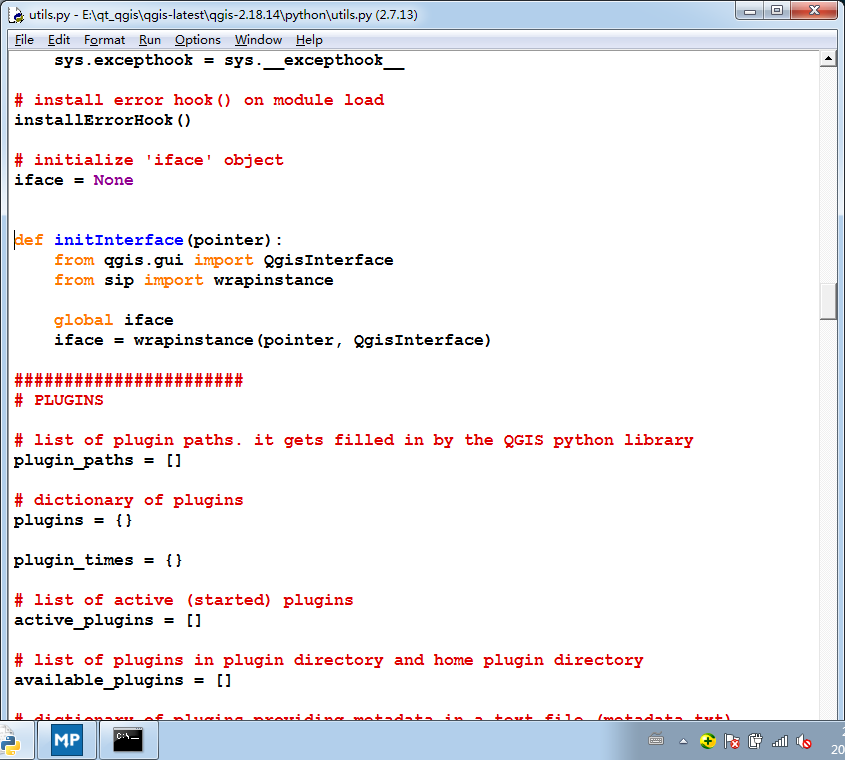Python扩展工具sip与swig
1.python 扩展包工具 SIP
- SIP是PYTHON扩展模块生成器,可以用来进行C/C++库绑定。专为PYQT而生,完善支持QT的信号与槽机制。
- 支持的C++特性比较全。
- QGIS使用了SIP进行接口封装,如下图:

- 绑定实例应该提供了实现接口。
2. swig and c++ and Python
swig 和SIP的功能类似,但是更强大,支持很多中语言之间的转换包装。
- 只读属性,写在%immutable and %mutable 之间
class List { public: … %immutable; int length; %mutable; … };
or
%immutable List::length; ... class List { ... int length; // Immutable by above directive ... };
- swig C++ 类中想用其它类成员,默认情况会包装成这种类型的指针,若想定用原来的类可以用 %naturalvar 宏
// All List variables will use const List& typemaps %naturalvar List; // Only Foo::myList will use const List& typemaps %naturalvar Foo::myList; struct Foo { List myList; }; // All non-primitive types will use const reference typemaps %naturalvar;`
- 默认参数,默认会生成参数个数+1个重载函数,可以用compactdefaultargs
%feature(“compactdefaultargs”) Foo::bar; class Foo { public: void bar(int x, int y = 3, int z = 4); };
- 操作符重载,可以用%rename来解决,eg: operator+()
%rename(
__add__) Complex::operator+;in python you can use ‘+’,因为
__add__就是‘+’ - 类扩展,用%extend,eg:
%module vector %{ #include “vector.h” %}
class Vector { public: double x,y,z; Vector(); ~Vector(); … bunch of C++ methods … %extend { char *str() { static char temp[256]; sprintf(temp,”[ %g, %g, %g ]”, $self->x,$self->y,$self->z); return &temp[0]; } } }; In Python, such a method(
__str__) would allow us to print the value of an object using the print command.$self 相当于C++中的 ‘this’指针,且只能访问公有成员或函数。
struct Base { virtual void method(int v) { … } int value; }; struct Derived : Base { }; %extend Derived { virtual void method(int v) { $self->Base::method(v); // akin to this->Base::method(v); $self->value = v; // akin to this->value = v; … } }
- 模板,用%template
/* Instantiate a few different versions of the template */ %template(intList) List
; %template(doubleList) List ; - STL/C++ Library, 智能指针
The following table shows which C++ classes are supported and the equivalent SWIG interface library file for the C++ library.
C++ class C++ Library file SWIG Interface library file std::auto_ptr memory std_auto_ptr.i std::deque deque std_deque.i std::list list std_list.i std::map map std_map.i std::pair utility std_pair.i std::set set std_set.i std::string string std_string.i std::vector vector std_vector.i std::shared_ptr shared_ptr std_shared_ptr.i
eg:
module example %include "std_string.i" std::string foo(); void bar(const std::string &x);
eg:
%module example %{ #include "example.h" %} %include "std_vector.i" // Instantiate templates used by example namespace std { %template(IntVector) vector<int>; %template(DoubleVector) vector<double>; } // Include the header file with above prototypes %include "example.h"
eg: boost/shared_ptr
%module example %include <boost_shared_ptr.i> %shared_ptr(IntValue) %inline %{ #include <boost/shared_ptr.hpp> struct IntValue { int value; IntValue(int v) : value(v) {} }; static int extractValue(const IntValue &t) { return t.value; } static int extractValueSmart(boost::shared_ptr<IntValue> t) { return t->value; } %}
参考:
